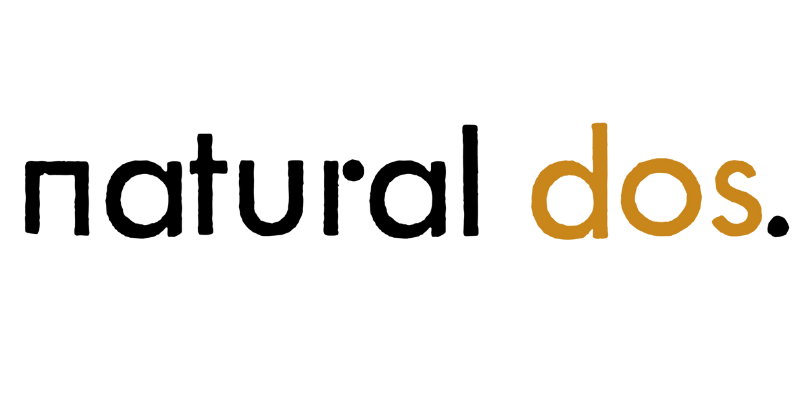
What does delta 9 THC have to do with hemp? Legally, not much, but many companies are taking advantage of a legal loophole in the 2018 Federal law around hemp processing.
In this guide, we will cover everything you need to know about Delta 9 and discuss how it works. We'll also delve down on its benefits and help you make an informed decision when choosing Delta 9 products.
Article Highlights
- As long as the hemp plant has less than 0.3% Delta 9 THC by dry weight basis, it is federally legal.
- Any hemp product that contains delta 9 THC must be under 0.3%, but if the product weight is significant, it can contain enough to yield a euphoric effect.
- Delta 9 tetrahydrocannabinol (THC) is main psychoactive cannabinoid found in Delta 9 hemp products.
- Delta 9 hemp products are steadily gaining popularity for the many benefits such as help with sleep, anxiety and stress, and some kinds of chronic pain.
What is delta 9 THC in hemp?
Hemp products with delta 9 THC are steadily gaining popularity for the benefits and euphoric feelings it brings. These mildly euphoric products are a hit largely due to the rich amount of cannabinoids, terpenes, and flavonoids that help balance the psychoactive compound delta 9. These compounds are well studied and shown to possess therapeutic effects beneficial to the human body.
Legal status of THC in hemp products
For a hemp product to legal it has to two meet general criteria:- As long as the final delta 9 hemp product only contains 0.3% or less THC by dry weight basis, it is federally legal.
- The delta 9 THC must be derived from a legal hemp plant, which has under 0.3% THC.
So why are you seeing so many hemp products on the market with THC?
The legal loophole
So how do companies create legal THC products?- To get around the first component of federal law concerning the 0.3% by weight, many companies are making heavier products, such as edibles, and adding THC in addition to CBD. Thus, if I have a 3g gummy, I can have up to 9mg of THC and still be legal. 9mg is enough to get most people a significant high, and if not, just take 2.
- The second part of the federal law is that all the cannabinoids must come from the hemp plant. But hemp flower does not contain enough THC to make it useful for large scale manufacturing. Some companies will take CBD from hemp plants, and convert it to THC, thus satisfying the second part of federal law.
- We should note that many companies are also making delta 9 THC derivatives, like delta 8 THC, delta 10 THC, and. THC-O that all confer similar euphoric effects. Since they are created from hemp cannabinoids, and are not mentioned in federal law, they are still kosher, for now.
Normal hemp oil products
Most of the CBD or CBDA products on the market may have small or trace amounts of THC if they are full spectrum products. Consumers will not get a high from these products, since they normal amount of THC in hemp oil is so low. These effects are way less potent than recreational marijuana or medical marijuana.
As the cannabis industry evolves, new hemp products come on the market looking for product fit. Many consumers do not want to get high from marijuana, but do want the relaxing effects that cannabinoids have to offer. Industrial hemp can provide those effects with the right combination of CBDA, CBD, and THC products.
It's worth noting that THC in hemp products can be addictive, similar to marijuana abuse, and there is still a possibility of an increased risk of dependency. Lastly, it's worth noting that full spectrum hemp products contain THC even in trace amounts, it still could cause a person to test positive on a drug test if enough is taken over time.
How does delta 9 THC work?
Delta 9 tetrahydrocannabinol (THC) is the main psychoactive compound associated with cannabis plants. This compound is produced in the flower of both hemp and marijuana, both of which fall within the cannabis plant species. While marijuana is often associated with abuse and marijuana dependence, hemp is not since it only has a small amount of THC content.
The cannabinoids present in hemp, including THC, work by interacting primarily with the endocannabinoid system (ECS) in the body. The euphoric effects of THC are found through its interaction with the ECS in the central nervous system (CNS), which is a complex system of receptors and enzymes. THC appears to primarily work through the CB1 receptor, and well known ECS protein that sits on the cell surface of many neurons.
Cannabinoid interactions
In addition to THC, hemp contains several other cannabinoids, the most abundant being cannabidiolic acid (CBDA). CBDA is found to have therapeutic benefits without causing the psychoactive effects associated with THC products. Additionally, CBDA can interact with THC and help reduce some of the unwanted side effects that can occur when too much THC has been taken.
The hemp plant cannabinoids are known for the entourage effect. The entourage effect describes the effects where consuming all the cannabinoids found in the hemp flower, including the minor cannabinoids, work together to produce a synergistic benefit. This explains why some individuals prefer whole-plant cannabis use instead of isolated cannabinoids, also termed isolates.
Health benefits of THC and hemp oil
THC along with hemp oil have many benefits:
Pain Management
Delta 9 THC added to hemp oil is a potential natural alternative for managing chronic pain, and is often prescribed for pain in states where it is legal. However, it's important to note that there may also be potential risks associated with its use. Hence, it's crucial to approach the use with precaution and under the guidance of a medical professional.
Anxiety and stress
Cannabinoids have been widely used for help with anxiety and stress. Many people look to relax at the end of the work day, and find significant relief in a hemp oil mixed with THC. While we do know there are significant benefits for stress, it should be noted that new research has linked THC consumption to increased risks of psychosis in patients with a history this mental diagnosis.
Sleep Disorders
Multiple studies have found that delta 9 THC is effective for alleviating some forms of insomnia. It facilitates better quality sleep and reduces the time it takes to fall asleep. Another study has also found that Delta 9 helps improve symptoms of obstructive sleep apnea in adults.
We should note that higher levels of THC consumption may also inhibit some important sleep cycle processes, so care should be taken when properly dosing this supplement.
Neurodegenerative Diseases
One of the most important is its ability to help with neurodegenerative diseases. The THC and CBD in hemp have been shown to be effective in some pre clinical studies at slowing the progression of Alzheimer's disease, Parkinson's disease, and even Huntington's disease.
Anti-Inflammatory Properties
Delta 9 hemp can help fight against inflammation. The powerful cannabinoids present in this plant have been shown to be effective in treating a variety of medical conditions. This includes arthritis, asthma, diabetes, and many more inflammatory diseases. It's also being researched as a possible treatment for multiple sclerosis. Few studies have also revealed that it may be helpful in alleviating chemotherapy-induced nausea.
Dosage Recommendations
For those new to Delta 9 THC, it's important to start with a low dose and find what works best for you. This will also help you determine your sensitivity to THC and other hemp oil cannabinoids. Tapered doses will also enable you to know how much of it you need to feel your best.Different amounts of THC typically yield different effects. What does this look like?
- 1-2mg of delta 9 THC - calm, relaxing effect
- 3-5mg of delta 9 THC - mildly euphoric and relaxing
- 5-10mg of delta 9 THC - euphoric effects, you will most likely feel high
These amounts can and will differ between people!
Potential Side Effects
There are a few potential side effects to consider before using Delta 9 THC. The most common is dry mouth, which can be mitigated by drinking more water or chewing gum, and this is usually associated with smoking. Other potential side effects include dizziness, constipation, increased heart rate, paranoia, and even diarrhea. If you experience any of these symptoms, discontinue use and consult your doctor.We should note that, like most drugs and natural compounds, the more you take the greater chance of side effects.
Takeaway
In conclusion, Delta 9 in hemp oil is a versatile and beneficial product with a wide range of potential health and wellness benefits. From pain management to improving sleep quality, reducing inflammation, the potential uses for Delta 9 hemp are vast and exciting. And with its sustainable and eco-friendly nature, it is a valuable resource for both personal and economic benefits.However, it's important to note that the effects of Delta 9 Hemp products may vary depending on individual factors and the specific product being used. It's always a good idea to consult with a healthcare professional before trying any new supplement or treatment.
With the legalization of the federal government regarding the use and sale of hemp and its derivatives in many states, the availability of Delta 9 hemp products is becoming more widespread. With careful research and consideration, you can make an informed decision about whether Delta 9 hemp is the right choice for you and your wellness goals.



